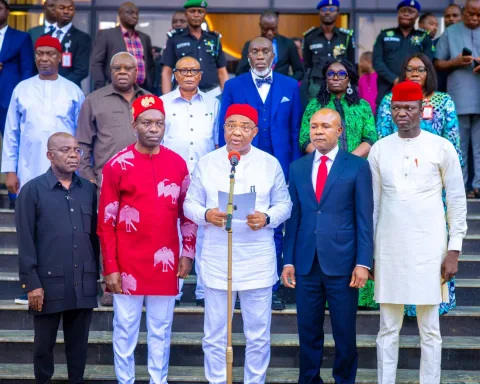In a move aimed at curbing corruption, the World Bank has blacklisted 58 Nigerian companies and individuals.
This action prohibits them from engaging in any projects or operations funded by the World Bank Group. The decision is part of the institution’s relentless efforts to maintain integrity and transparency in its endeavors.
Join our WhatsApp Channel“The World Bank’s commitment to combating corruption is unwavering,” stated a spokesperson for the institution. “We hold a firm stance against any form of malpractice that undermines the effectiveness of our projects.”
Among the entities affected are 39 Nigerian companies previously sanctioned by the African Development Bank (AfDB). Additionally, 19 individuals have been identified under the cross-debarment policy, bringing the total tally to 58. These entities have been rendered ineligible to partake in any projects or operations financed by the World Bank Group.
The decision to redlist these entities followed a rigorous administrative process conducted by the Bank. This process allowed the accused parties to respond to the allegations, adhering strictly to the institution’s procedures for sanctions proceedings and settlements in bank-financed projects.
READ ALSO: How World Bank May Influence Nigeria’s Tax Reforms For $750m Loan
“We ensure a fair and transparent process in all our dealings,” affirmed the spokesperson. “The integrity of our procedures is paramount in upholding accountability.”
The World Bank’s actions are in alignment with the Agreement for Mutual Enforcement of Debarment Decisions, which facilitates cross-debarment among several international financial institutions. This agreement underscores a collective commitment to combatting corruption on a global scale.
In addition to debarment, the World Bank reserves the right to implement further actions against entities found in violation of its policies. These actions are aimed at ensuring compliance and deterring future misconduct.
The prohibited conduct leading to debarment is clearly outlined in the World Bank’s procurement guidelines and regulations. These guidelines vary depending on the nature of the project, emphasizing the institution’s stringent approach to maintaining ethical standards.
The World Bank’s decisive measures underscore its unwavering dedication to combating corruption and promoting accountability in development projects. By safeguarding the proper use of funds, the institution remains steadfast in its mission to serve the best interests of the people.
Emmanuel Ochayi is a journalist. He is a graduate of the University of Lagos, School of first choice and the nations pride. Emmanuel is keen on exploring writing angles in different areas, including Business, climate change, politics, Education, and others.
- Emmanuel Ochayihttps://www.primebusiness.africa/author/ochayi/
- Emmanuel Ochayihttps://www.primebusiness.africa/author/ochayi/
- Emmanuel Ochayihttps://www.primebusiness.africa/author/ochayi/
- Emmanuel Ochayihttps://www.primebusiness.africa/author/ochayi/



















Follow Us